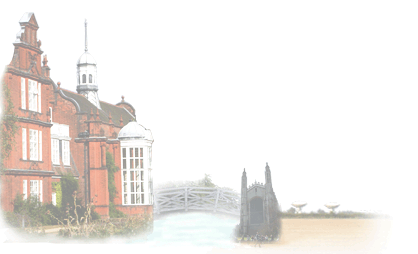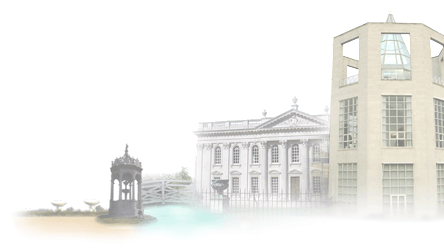A Cambridge perspective
on the digital world



August 2003
For more than a century, the core skills needed to live and work in civilised
society have been literacy and numeracy - reading, writing, and arithmetic.
But in a White Paper signed by Prime Minister Tony Blair and key members of
his government (including the Chancellor of the Exchequer, and the Ministers
for Education and Skills, Trade and Industry, and Work and Pensions), the
British government has now said that a 'third basic skill' should be added.
The new skill is ICT Literacy, the knowledge of how to use Information and
Communications Technology.
In case anyone was confused by the boom and bust extremities of the digital era (was it real, or just a flash in the pan?), this official declaration puts the role of digital technology in historical perspective. The government's declaration is the biggest change in the nature of what is taught in over a century. It is an acknowledgment, based on a sober look at the data, that it has become all but impossible to live in modern society without coming to terms with digital technology.
For all except the most menial jobs (and even for some of those), you need to know how to work a screen and keyboard, and you need to know something at least of what is going on behind them. Recession or not, work patterns are changing at a faster rate than at any time since the Industrial Revolution. Call centre employment is growing at the expense of both offices and factories, the traditional places of work. But wherever you work, you will need at least basic IT skills, and often a great deal more. Many people who used to work in office are finding themselves on the road, with a laptop, wireless communications and a mobile phone for company. Others are running international businesses from home. ICT Literacy is changing both the workplace, and the nature of work itself.
But the change does not just apply to people in work. Traditional services and information sources are being replaced by Internet-based solutions - because they are unquestionably cheaper and better. The consequences are that people who do not switch to new ways of doing things are likely to be left out, or at least to end up with a third-class service. Traditional alternatives are still provided, but for how long? The discount which many commercial organisations (banks, for example) apply to dealings over the Internet is slowly transmuting into a surcharge for not using the Internet.
Nor does this apply just to the young, or even the middle-aged. One group of people who are rapidly coming to terms with digital technology and the Internet is the elderly. Technology can improve the quality of life of those who are no longer physically active, for example by enabling communication and interaction with others, and making possible online shopping. Growth of the aging population and pressure on resources may mean that this becomes not an optional extra but a practical necessity, for those who want to live independent lives at an acceptable cost.
The continuing spread of mobile phones - now used by more than 80% of people in the UK, and similar numbers in other countries - is moving the pace of development up a gear. Mobiles are rapidly escaping their original purpose as voice telephones and being used for purposes ranging from text messaging to sending pictures and video. The use of mobiles for transactions - buying and selling - is just beginning.
But if ICT literacy is important at the basic level of education, it is even more so for those who make strategic decisions, whether in business and politics, or in institutions such as education, government and finance. If workers and citizens need basic ICT skills, decision makers need much more. They need to know not just how to work a word processor, but how (for example) instant and almost cost-free worldwide communications, global media, and the ability to move jobs online across continents affect the way things are done.
Strategic ICT literacy means knowing how technology changes what is possible, just as reading and writing enabled things that were not possible in the pre-literate era. These things included mass education, printed books, newspapers and magazines, and even the development of democratic politics. None of these could have happened without a population that could read and write. The changes that ICT literacy is bringing about – both good and bad – are equally profound, but are happening ten or a hundred times faster. No decision maker can escape the conclusion that the world where their decisions will take effect is fundamentally different from the world that has existed up to now. The traditional basis of most decision making - that things will, more or less, carry on the way they always have done - no longer holds water.
Digital technology has affected the minutiae of everyday life and work in hundreds - perhaps thousands - of detailed ways. The larger effects on the structure of life and work, and on institutions such as government, education, healthcare and finance are even greater, and they have barely started. The UK government's action is one example of how much things have changed, and are still changing. The roller coaster ride of the past decade shows no sign of slowing up: in short, we ain't seen nothing yet.
©2003 Mediation Technology
Read our paper 'Text: the natural medium for interaction' from Mediatech 2003![]()
